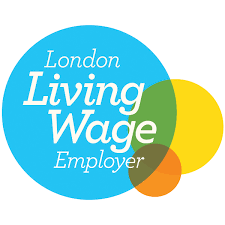
“You can't always get what you want But if you try sometime you find You get what you need”
These famous lyrics are indeed true for those looking to secure funding for small business as well as achieve financial stability.
As a small business owner, one of the main factors in achieving this stability is keeping a careful and realistic balance between needs and wants. Especially as a new business owner, it is natural to want to move everything forward at a fast pace and always have all the latest gizmos and gadgets for your business as soon as they are available! But sometimes it makes more financial sense to proceed with caution. Terrible financial choices can lead to bad credit scores for businesses and even long term debt.
We would recommend five tips for staying in control of your finances:
Keep spending within your budget
You need to know in detail how much money you need to make in order to break even and how much you therefore have to spend to run your business on a daily basis.
Take everything into account so that you know how much income you need to cover your fixed and variable expenses and also your own salary. It is well worth taking the time to always have this up to date information so that you know exactly what money is then available to spend.
Think long term
When you are spending money, think long-term. Buy things that will reap long-term benefits rather than just current benefits. But even in this case, still always balance the cost versus the benefit: if the potential purchase is not directly going to help you to increase the quality or quantity of your business then don’t buy it.
Keep your records up to date
It is so easy to get behind with record-keeping and starting to feel that things are spiralling out of control. It is worth spending a few minutes at the end of every day organising documents and receipts etc so that these essential items can easily be found when needed. Never put this off! You will regret it if you do.
Keep your business and personal finances separate
As a small business owner, it can be very easy to start overlapping your business and personal finances. Perhaps you’ve paid some business expenses from your personal account so you then pay for a personal lunch on expenses - and so it goes on.
But it then becomes increasingly difficult to separate the two, and you end up not having a very clear picture of how the business finances really stand. So do keep them separate. If necessary, consider using a business credit card to help manage your business cashflow without dipping into your personal money.
Keep fixed costs down
The fixed costs of your business are those costs that you need to pay every month, regardless of whether or not money is coming in. Any way in which you can bring down fixed costs will help enormously.
If you are renting office or other premises, get the cheapest rent that you can - a recent article covered ways you might be able to do this. Some other ideas you may want to consider are:
- use free and open source software and cloud storage instead of purchasing software and in-house storage
- register online with the provider of a free telephone number that you can then forward to your mobile number
- use conference calls and Skype or Facetime instead of face to face meetings whenever possible
- consider trading services with other professionals instead of paying them: for example, if you are skilled at website design you could help someone with this and let them update your accounts for you in return
We hope that these tips will help you keep on top of your finances and enable you to acquire everything you need - and perhaps also some of the things that you want!




